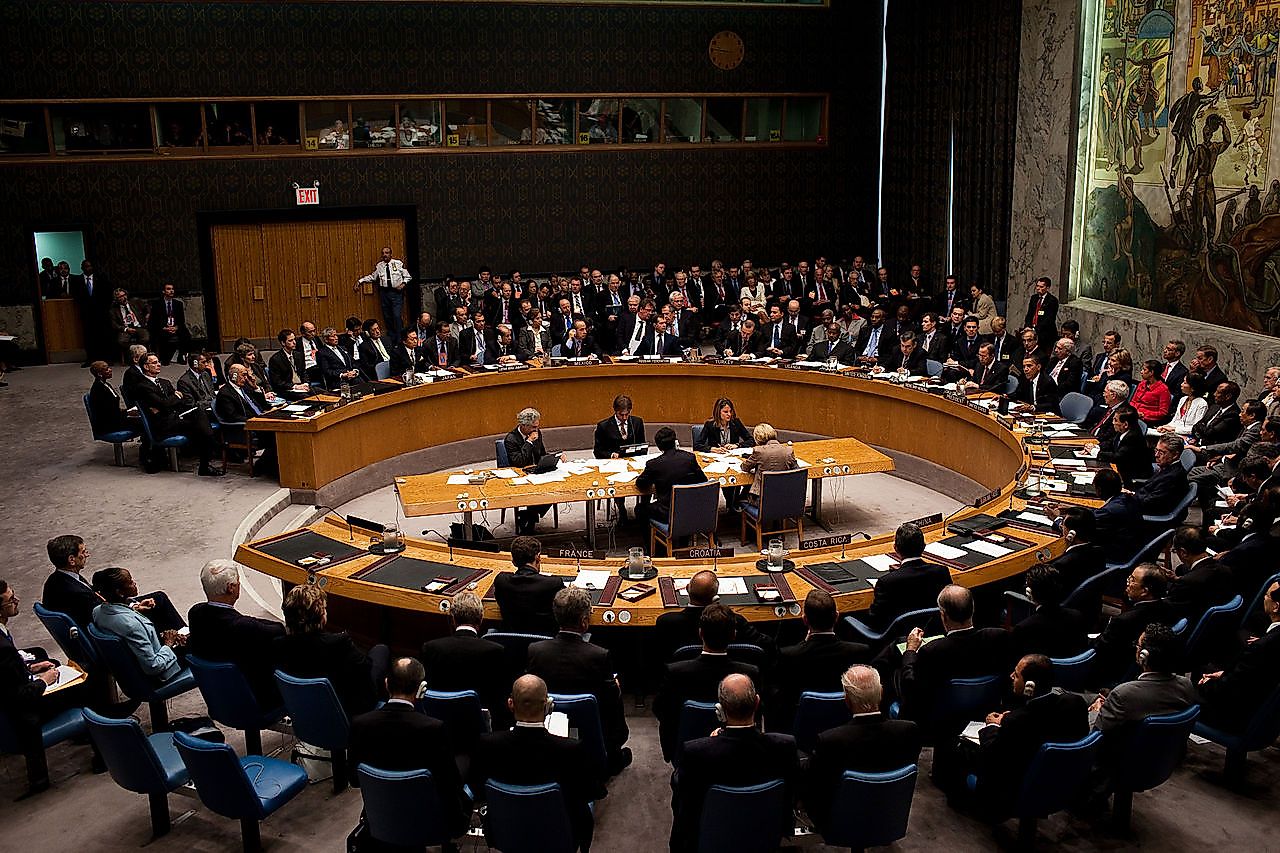What Does The UN Security Council Do?

- The UN Security Council was founded on October 24, 1945.
- During the cold war between the United States and the Soviet Union, the UN Security Council was largely paralyzed.
- The Security Council has been instrumental in some of the world's biggest conflicts.
Ever since it was founded on October 24, 1945, the UN Security Council was tasked with one main mandate, the maintenance of international peace and security. It does this by investigating the situations that seem to threaten peace, calls the parties involved to settle the dispute peacefully and gives recommendations on the same. In severe cases, the council imposes sanctions on member states, authorizes the use of the military and also calls for the severance of diplomatic ties and relations with the offending state.
Formation And Member States
In 1944, the Dumbarton Oaks Conference took place in Washington, DC. In attendance were delegates from the UK, China, the Soviet Union, and the US. The main agenda was the discussion of the United Nations' structure. The first five permanent members of the Security Council were selected, France, the Republic of China, the UK, the US, and the Soviet Union. The US attempted to have Brazil as part of the council but the suggestion was declined by the Soviet Union and United Kingdom's delegates.
The five permanent members have the veto powers to block a resolution, but not to stop member states from debating on the said resolution.
The first-ever Security Council meeting was held on January 17, 1946, in London. After the disbandment of the Soviet Union in 1991, Russia took the spot on the permanent members.
In addition to the five permanent member states, as of January 2020, there are 10 non-permanent members. The temporary members hold their positions for two years and are elected by the UN General Assembly. Niger, Tunisia, and South Africa represent Africa, Vietnam and Indonesia represent the Asia Pacific, Eastern Europe is represented by Estonia, Belgium and Germany represent Western Europe, and Latin America and the Carribean is represented by Saint Vincent and the Grenadines, and the Dominican republic.
Each of the members holds the presidency of the council for a month in a year and is tasked with chairing meetings, overseeing conflicts and setting agendas.
Role Of The UN Security Council
In addition to maintaining international peace and security, the security council has a few other roles to play as the most powerful organ of the United Nations.
- It recommends new member states to the General Assembly.
- The Security Council also recommends the secretary-general of the United Nations appointment.
- Together with the General Assembly the council also appoints and elects judges for the International Court of Justice.
Cold War
During the cold war between the United States and the Soviet Union, the council was largely paralyzed. After the dissolution of the USSR, the council has become active in the peacekeeping endeavors.
Conflict Resolution
The Security Council has been instrumental in some of the world's biggest conflicts. In 1950 it authorized American involvement in the Korean war. In 1956, the first-ever UN Peacekeeping force was deployed to settle the Suez Crisis. It has also overseen the UN operations in Congo, the Salvadorian Civil War, the Namibian War, the Sierra Leone Civil War, the War of Darfur, Sudan, and several others.
Despite all this, the council failed in some instances like in the Rwandan Genocide and in Bosnia. The US invasion of Iraq in 2003 and the Srilankan Civil War seemed to question the council's powers and effectiveness.











